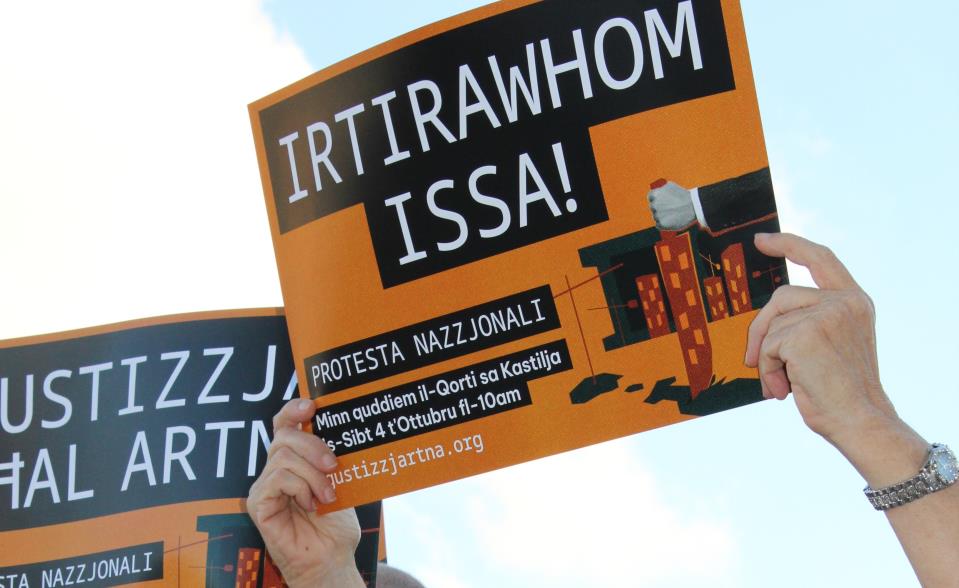More than 160 University of Malta lecturers have endorsed a campaign urging the government to withdraw two planning bills which are set to “grant excess power to the Planning Authority and suppress people’s access to justice in this area.”
A national protest against the bills, which the government wanted to rush through Parliament before summer but which were withheld pending what was described as a consultation exercise, will be held on Saturday.
The planning system has far-reaching implications for daily life in Malta and Gozo, as well as for the environment, society, culture, and economy, the academics said in a statement Tuesday. Carrying out such a reform without serious studies risks negative ripple effects and unforeseen impacts across many sectors, from health to employment, to transport and livability.
Bill 143 grants wide discretionary powers to a small group of people within the Planning Authority, concentrating decision-making within it and making it more powerful than Parliament and, in some respects, the Courts. This group of people within the Planning Authority would be able to change zoning established by Local Plans, to issue policies overriding higher-level planning documents, and to ignore environmental and sanitary considerations in its decisions, the statement said.
The Bill also empowers the Minister to arbitrarily reinstate expired permits. It introduces the concept of vested rights in the planning sector, risking irreversible damage and obstructing the introduction of future planning and environmental safeguards, it added.
Bill 144 contains numerous provisions that severely limit citizens’ access to justice. These include obliging appellants to cite only grounds raised during the application stage, empowering the Environment and Planning Review Tribunal (EPRT) to materially change an approved application during the appeal, and allowing the EPRT to impose unappealable and hefty fines for undefined “frivolous or vexatious” appeals. Alarmingly, this Bill would also strip the Courts of their power to revoke irregularly issued permits, the lecturers said.
Subsequent to these bills, Government published three legal notices that, either through regularisation or concession, would grant amnesty for different types of illegalities, without limits in terms of size, location, or use. These concern Regularisation (DZ) that applies to illegal development within development zones, Regularisation (ODZ) that applies to illegal development outside development zones, and the Concession Certificate that acknowledges the existence of illegal development without granting full planning permission.
This planning reform is deeply problematic not only because of its content but also because of the process that produced it. There was no public and transparent consultation prior to the tabling of the Bills in Parliament, the statement said. Only after a public outcry did a perfunctionary consultation process take place in August and September. Moreover, Government has presented no studies or evidence demonstrating the needs being addressed by this reform or its potential impact.
In view of this, we urge Government to withdraw the two Bills and three legal notices and to issue a White Paper on planning reform employing a process of genuine consultation and studies that pave the way for the right laws and policies to be put in place for the public good. Meaningful consultation from the design stage is a fundamental principle of good governance and sound democracy.
Consequently, we also endorse the demands of the campaign Ġustizzja għal Artna, namely:
The immediate withdrawal of the draft bills and legal notices.
The urgent introduction of a measure suspending works on developments approved by the Planning Authority while an appeal is ongoing.
The publication of a White Paper to launch a genuine consultation on the broader planning reforms Malta truly needs.
The list of lecturers who signed the statement can be found here
